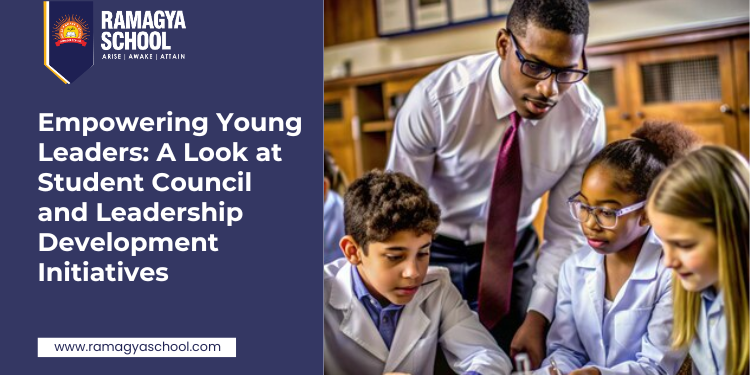Student councils are essential to the development of leadership skills and the shaping of students’ lives at every school in the world. These student-elected councils work with the administration of the institution to improve student welfare and campus life while also serving as an advocate for the student body.
Let’s explore the importance of student councils as well as how they function and what impact they have on the development of young leaders.
Why Student Councils Matter?
Student councils are a way that allows students to be active participants in the process of making decisions that impact their lives.
- Through participation in initiatives like organizing events, raising concerns of students and suggesting changes, council members acquire important skills such as teamwork, communication and solving problems.
- These experiences do not just boost their confidence, but will also help them to be prepared for a role as leaders in various areas of life.
Roles and Responsibilities
The roles of the student council usually comprise a president, vice-president secretary, treasurer and committee chairs who are accountable for specific areas, such as social events, community service and academic issues. Each member brings unique perspectives and expertise to ensure the diverse needs of students are met efficiently.
Council members work closely with school teachers and administrators to tackle issues that range in school rules to additional curricular events. They host fundraising events, spirit weeks and charity events that foster the sense of school pride and community among their fellow students.
Leadership Development Initiatives
- Beyond their immediate duties, student councils also participate in leadership development activities.
- These initiatives aim at enhancing the abilities of council members by providing seminars, workshops and conferences focusing on leadership, public speaking, leadership, and managing projects.
- Leadership roles extend far beyond the council itself since council members are often mentored by younger students, urging students to participate and to develop their leadership skills at an early age.
- The mentorship process results in an environment of leadership, which strengthens the school community in the long run.
Impact on Student Growth
The participation in student councils can bring many advantages to the individual members as well as the students as a whole. Students learn vital life skills like time management, negotiation and making decisions, which are crucial for future professional and academic success.
Additionally, the sense of responsibility and accountability that is cultivated by students who are members of councils helps them be active citizens and leaders in their communities after school. Many of the alumni of student councils go on to pursue jobs in education, politics as well as business areas in which leadership is a priority.
Challenges and Learning Opportunities
While being a member of an elected student council is satisfying, it also brings difficulties that can contribute to personal development.
- The ability to manage tensions, manage expectations and keep academic commitments in check with the responsibilities of a council member are essential lessons that help students prepare for the challenges of adulthood.
- The diversity within student councils–representing different backgrounds, interests, and perspectives encourages inclusive decision-making and fosters a culture of respect and understanding among students.
- These events foster compassion and open-mindedness that are essential traits for leaders of the future in a world that is increasingly connected.
Inclusivity and Representation
Achieving inclusion and representation within student councils is essential to their effectiveness. Schools are increasingly focused on the diversity of council members to ensure that they reflect the student population in a fair and accurate manner. Initiatives to increase participation of minority groups can create a more fair and inclusive school atmosphere.
Ramagya School’s Approach to Empowering Young Leaders

- Structure of the Student Council: The student council is arranged by elected positions including vice president, secretary, president, treasurer and committee leaders. This structure guarantees that a range of students’ voices are heard in the decision-making process.
- Roles and Responsibilities: Members of Councils of Ramagya School collaborate closely with school administrators to address student issues and coordinate events to boost school spirit and engage the community. They play an integral part in creating an environment that is positive for students through activities such as community events and cultural initiatives.
- Leadership Development Initiatives: Ramagya School emphasizes leadership development through seminars, workshops and mentoring sessions designed to improve skills like communication teamwork, problem-solving, and teamwork within council members.
- Impact on Student Growth: Student council participation at Ramagya School helps develop vital life skills as well as an awareness of civic responsibility, and prepares students for leadership roles along with active engagement in the community.
- Inclusivity and Representation: Ramagya School promotes inclusivity by increasing participation of diverse students in council elections, and ensuring that the council is representative of the school’s diverse student population effectively.
Conclusion
In the years ahead, we will keep investing in our leadership programs and encourage diverse representation in the student council. We will make sure that the next generation is prepared to face issues and be leaders with integrity and compassion. Instilling young leaders in student councils isn’t only about helping them prepare for the future, it’s about creating a future in which every voice is heard, and every student has the chance to flourish.





